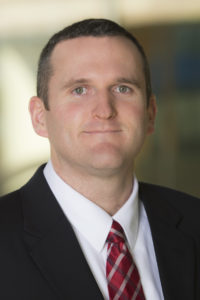It isn’t hard to find Baptists and other Protestants who believe Mormons are not Christians. But about half of all Americans and nearly every Mormon believe they are, the Pew Research Center has found.
So who is right? Well, what Pew also has found is that it depends on who is asked. But for the researchers themselves, the safest and most accurate bet is to let Mormons decide for themselves, said Gregory A. Smith, associate director of research and head of the domestic religion survey team.
“We don’t see it as our place to cast judgment about who does or doesn’t count as a member of any religious group,” Smith told Baptist News Global.

Gregory A. Smith
Pew published an article online Thursday explaining how it measures the nation’s religious composition in studies that have become must-reads in churches, mosques, synagogues and other religious organizations trying to survive in an increasingly secular age and culture.
Pew said it is regularly questioned by readers about its work, whether it’s tracking the rise of the so-called “nones,” the decline in denominational identity or other issues.
“We get push back,” Smith said.
That’s often true when tracking potentially controversial attitudes and behaviors within faith groups.
Smith used Catholics as an example because they are the focus of his own research. A survey about political beliefs and practices was met with skepticism by some because it included the views of Catholics who do not regularly attend Mass, he said.
“We will often get assertions that, well, they aren’t really Catholics, that the only real Catholics are those who attend Mass once a week or meet some other criteria,” Smith said. “They say Catholics should really be a narrower group in the survey.”
But it doesn’t stop there.
“Others take the opposite position,” he said. “They say anyone baptized Catholic is Catholic, even if that person says they aren’t Catholic.”
All such views are valid, Smith said, but Pew and most other research groups stay out of it by relying on respondents to know what faith tradition they do, or don’t, belong to.
“In many of our reports we rely a great deal on self-identification,” he said. “We take them at their word.”
From there, researchers can drill into beliefs and practices.
But the process is further complicated in a society in which many don’t agree with, or know about, the religious categories they might fit into, the Pew article said.
“A key question we ask in many surveys is: ‘What is your present religion, if any? Are you Protestant, Roman Catholic, Mormon, Orthodox such as Greek or Russian Orthodox, Jewish, Muslim, Buddhist, Hindu, atheist, agnostic, something else, or nothing in particular?’”
Pew said many will answer “something else” to that question. But in follow-on questions they identify as Baptist, Methodist, Pentecostal or another tradition. At that point, Pew said, they “are subsequently categorized as Protestants.”
Smith said Pew researchers face the same challenges when surveying those who say they have no faith.
“A large, growing group says they have no religion and self-identify as atheist or agnostic,” he said. “But some of them also say religion is fairly important in their lives, and some say they pray, believe in God or a higher power of some kind.”
And there are those who identify as religious but have a weak attachment to the religious group they identify with, Smith said.
“There are lots of people who say they are Catholic or Protestant or Jewish or Muslim who are not particularly religious.”
Diversity of belief and practice and understanding of religion requires researchers to ask a lot of questions.
“It does complicate things,” he said.
